Author: BeLight.com
The trend in lighting source is turning towards LEDs backed by a positive outlook by most consumers.. However, not every lighting designer we’ve met admits that LED is a perfect – at least, better – choice. We will compare the debates made against LEDs against previous project published on Belight.
-

-
The special-designed LED Cigar Light applied for Ruentex Tun-Rein Residence Lobby
Photo Credit: CMA Lighting Design Inc.
Penetration of LED
According to LEDinside’s research, LED penetration rate in the lighting market has been soaring since 2012 and is predicted to reach a record high in 2014. The key reason is price -- LED light bulbs were cheap enough for people in 2013 to use as replacements for 40W incandescent light bulb. They are also brighter and more energy-saving than conventional lamps leading to the increase in penetration rate.
However, CC Hwang, Art Director at Belight, says that only 10% of LED lighting fixtures are adopted in new lighting design projects around the world. “We all know that LEDs are the future of lighting, but there are still some requirements LEDs can’t achieve,” says Hwang. “The first, and the key thing to me, is that LEDs are not always the best choice for lighting design.”
While she also points out that the penetration rate of LEDs in the lighting market is increasing; spaces like shopping malls, architectures, hospitals, streets and residences still currently prefer using LEDs,making the 10% ratio hard to believe. The answer is not that complicated: lighting design needs more than just price, brightness and energy.
-
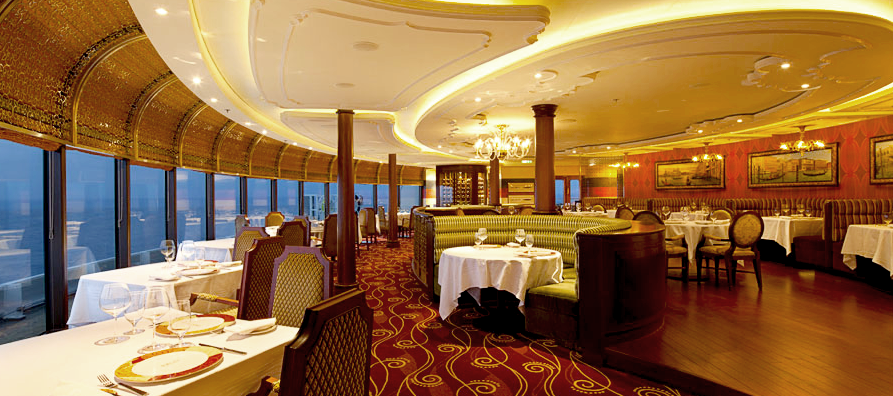
-
There are only 10% of LED lighting fixtures are adopted in new lighting design projects around the world.
Project: Disney Cruise Line – Disney Dream & Fantasy
Photo Credit: DCL
Owner: The Walt DIsney Company
Builder: Meyer Werft
Lighting Quality
If you are a faithful reader of BeLight, you will know how many articles and paragraphs we have written discussing the quality of light. From the TNT Night Watching Tour to CC Hwang’s presentation at LEDforum in Taipei, every lighting designer tries to express his/her opinion on what is considered comfortable lighting. The use of light is far from merely illuminating something or somewhere – it is about how you feel.
LEDs will undoubtedly become the most popular light source in the following years, however lighting designers are still unable to completely agree on the benefits of LEDs. Ta-Wei Lin, the lighting designer of CMA Lighting Design, said in an interview that he feels using LEDs are cumbersome. LEDs are such a new light source that lighting designers have to do more tests before installing due to the unpredictable nature compared to traditional light sources. Lots of clients prefer adopting LEDs due to low energy consumption without knowing that it is more difficult for LEDs to create lighting conditions as comfortable as traditional fixtures.
-
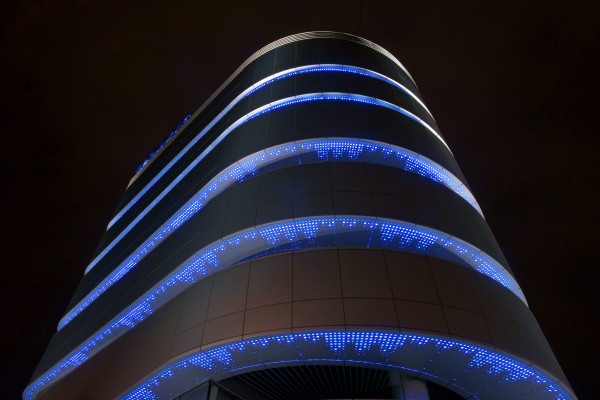
-
The Giant Headquarters in Taiwan is a "perfect case" for Ta-Wei Lin.
Photo Credit: CMA Lighting Design
Regarding the 10% issue, the reason why only 10% of all lighting design projects adopt LEDs is probably because LEDs can’t meet lighting designers’ requirements. When we ask Yao Cheng Chung, the President of Coretronic Culture and Arts Foundation, about the lighting fixtures they used for Wind God Temple at the press conference for “Temple of Light,” he answered: “What is important is not the lighting fixtures we use, but the way we apply them.” This answer indicates a core concept of lighting design.
-
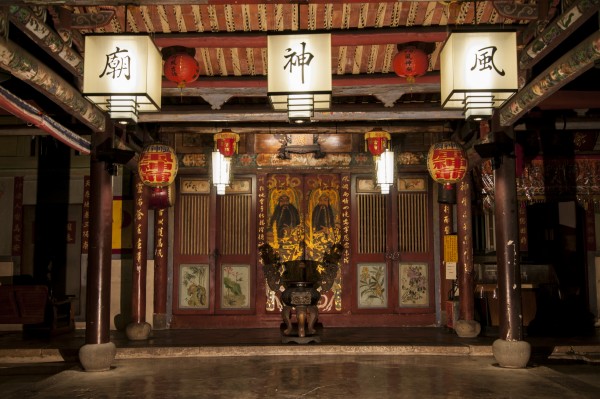
-
Wind God Temple has a new face in new lighting.
Photo Credit: Coretronic Culture and Arts Foundation
It’s About The Way You Use Them
Kaoru Mende, the Principal of Lighting Planners Associates Inc. (LPA), has been introducing LED fixtures into some LPA’s lighting projects. He shares the same opinion with Ta-Wei Lin but still tries to use LEDs on his projects, such as Gardens by the Bay and The Star Performing Arts Centre & Star Vista. As a Japanese who has experienced the 2011 Tōhoku earthquake and tsunami, he rethinks lighting design in a greener aspect – sustainability. Since LEDs consume less energy than traditional light sources, they can help reduce our reliance upon nuclear power plants.
-
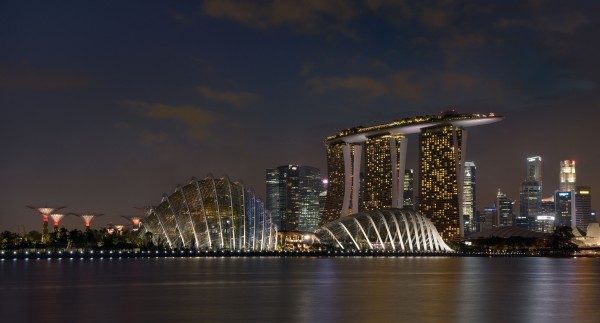
-
Gardens by the Bay
Photo Credit: LPA, Toshio Kaneko
LEDs often remarked as being overly bright, a sign that they are have more efficiency than traditional fixtures, making them adequate light sources for illuminating large zones if controlled properly. CC Hwang installed a series of white-light LED lamps in the St. Botolph Building to wash a piece of wall, taking great cares to make every single one looks the same. As you can see inthe photos, the LEDs show an active facade while offering enough luminance in an energy-saving way.
-
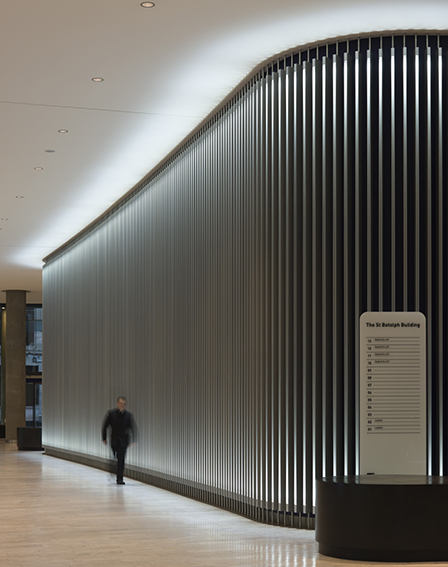
-
The St. Botolph Building in UK and its facade lit up by a series of LED lighting fixtures.
Photo Credit: James Newton
When choosing the light source, we face some tradeoffs. Generally speaking, LEDs are neither reliable nor stable compared to conventional fixtures in aspects of lighting quantities (especially CCT and CRI) and are not fancy enough to convince lighting designers of using them. However, the flexibility and low energy-consuming are both huge attraction for modern ideas. With help from control systems, people can adjust lighting conditions for their own needs to create a better atmosphere – this is the future depicted by CN Sun, Principal of GUANG Lighting Design.
So far, we are still in a serious debate on how positive LED lighting fixtures are. No matter what the conclusion is, we can anticipate that LED technology will continue improving. “Although lighting designers tend to find disadvantages in LEDs’, we are beginning to admit that LEDs offer a wider imagination for us,” said CC Hwang


















